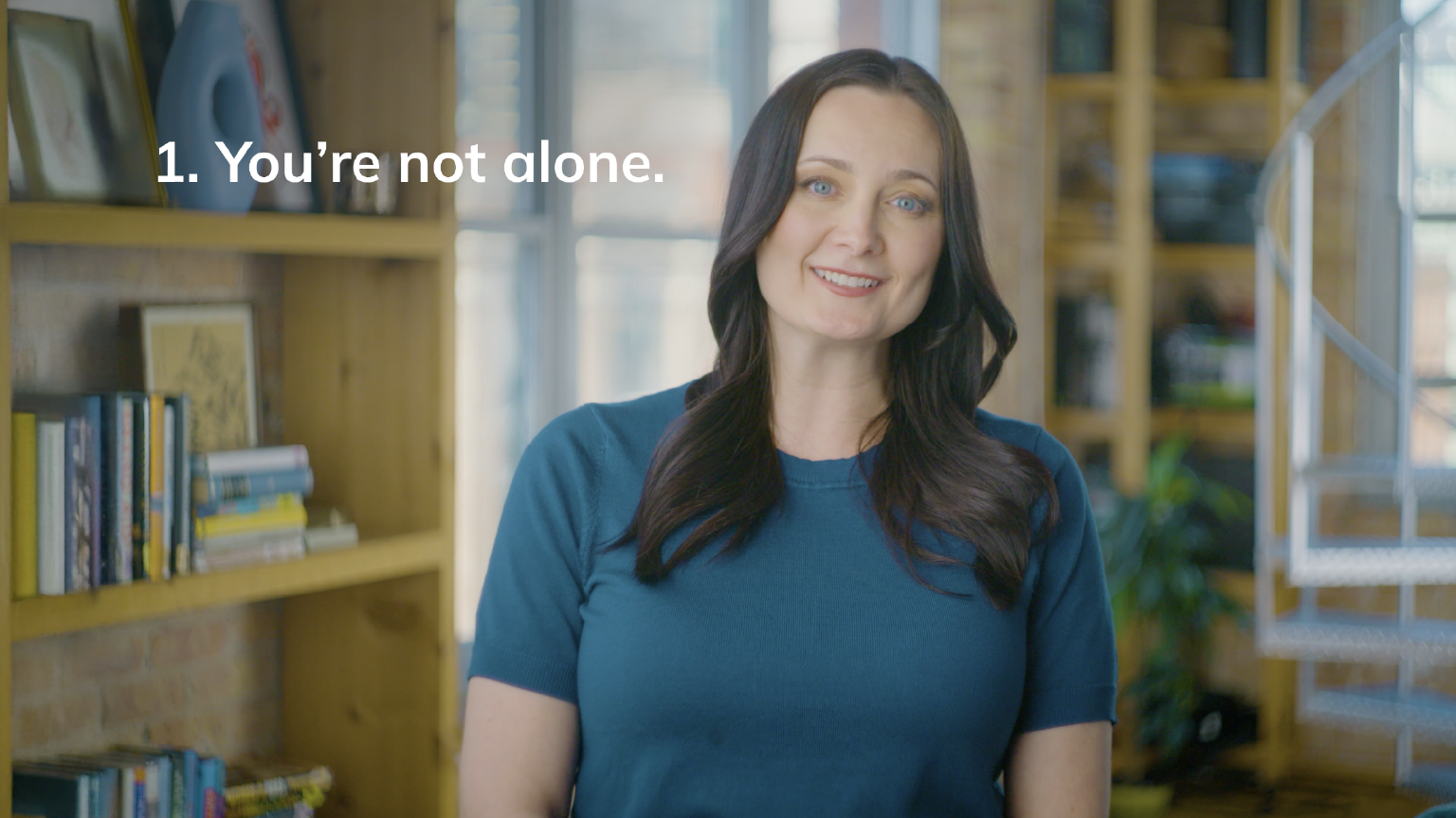Video: Navigating Shame About Debt
In this 2-minute video, Dr. Erika Rasure, Beyond Finance’s Chief Financial Wellness Advisor, shares:
- The difference between guilt & shame (and why one is productive, and one is not)
- Tips to help you navigate any shame you may be feeling
- Why society’s messages about what’s “good and bad” with money shouldn’t be taken at face value
Transcript:
Let’s quickly talk about the difference between guilt and shame. Guilt usually comes from a mistake — I said something I didn’t mean and hurt someone’s feelings, and I’m feeling guilty about it so I apologize. Guilt can cause self-reflection and positive change, which is a good thing.
But shame doesn’t tell you you made a mistake. It tells you that you ARE the mistake: “I didn’t just get into debt — I’m the type of person who gets into debt.” Shame can hinder our ability to change or take action.
Society’s conditioned us to think in very black and white terms about what’s good and what’s bad with money. But that mindset doesn’t take into account the ups and downs of life or how easy it is to get into debt.
Now, losing the shame doesn’t mean losing responsibility. You can still take ownership of your choices but you can also recognize that if you made mistakes, it doesn’t make you a bad person.
If you’re feeling shame, defend yourself TO yourself. Repeat affirmations as much as you need to, to counter those negative internalized messages, like “The debt wasn’t my fault; I was laid off and I had to use credit cards,” or “I’ve made mistakes, but I never really did have a real financial education.”
And a few more tips here:
- Recognize you’re not alone in this. There are millions of people in similar situations to yours.
- Be honest to people you trust about what’s going on because shame thrives in isolation.
- Know that anyone judging you is just operating from their own black and white worldview.
- Identify your own values when it comes to money. “Do I value my creditors’ bottom line? Or do I value MY family’s financial security and ability to thrive in this world?”
Start working yourself out of that shame mindset. It’s OK to feel regret about mistakes, but remember it’s something you did, it’s not something you are, and let that drive you towards positive change.
